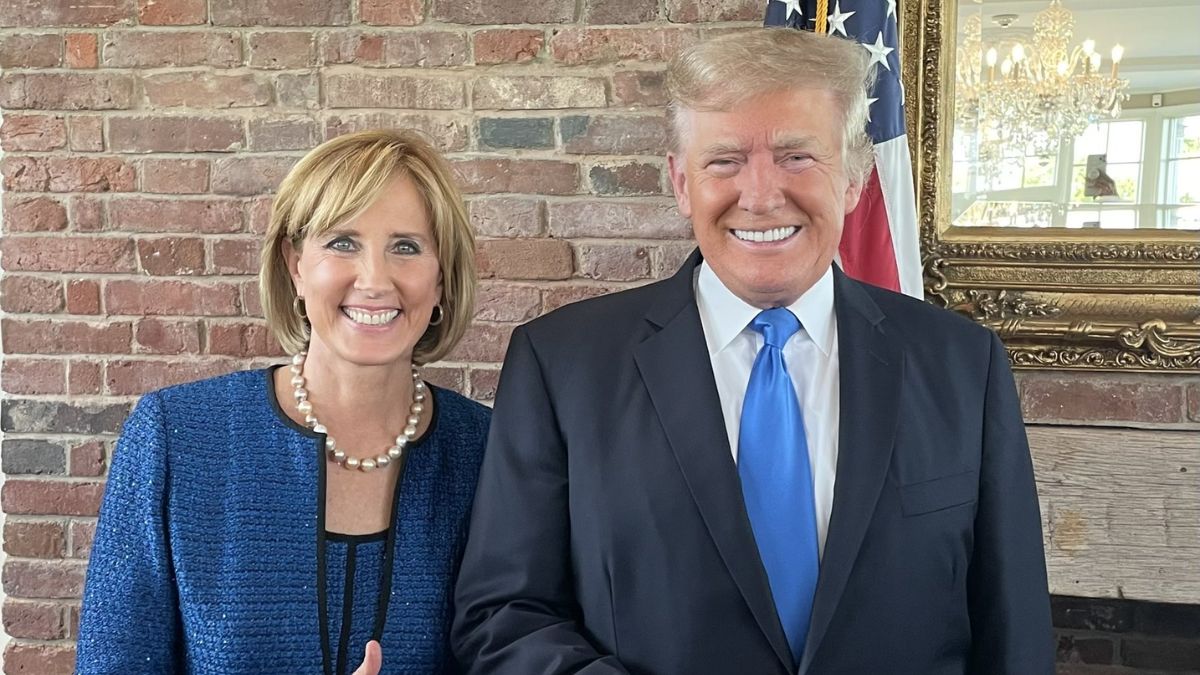Is Donald Trump’s birthday set to become a federal holiday in the US?
A proposal titled the “Trump’s Birthday and Flag Day Holiday Establishment Act” has been put forward in the US.
ALSO READ | The US celebrates Presidents’ Day to honour its president who didn’t celebrate his birthday
Trump’s birthday falls on June 14, and the bill seeks to make the day a federal holiday, combining the celebration of his birthday with Flag Day.
Flag Day is recognised as a national observance but is not currently designated as a federal holiday in the US.
The bill was introduced by Republican Congresswoman Claudia Tenney. It currently lacks co-sponsors, but it is expected that other far-right lawmakers may support it.
What is the purpose of this bill? Before exploring its key aspects, it is important to first understand what a federal holiday is and the process involved in its declaration.
What is a federal holiday?
Federal holidays are designated paid days off recognised by the US government, during which non-essential government offices close, and employees receive a paid holiday. Also, banks, post offices, and schools typically remain closed across the country.
The Federal Government observes 11 holidays annually. Employees required to work on these days are compensated at a holiday premium rate for their scheduled non-overtime hours, whether they work full-time or part-time.
ALSO READ | First time in New York City, 1.1 mn school kids had holiday on Diwali
The following are recognised federal holidays in the US:
New Year’s Day – January 1
Martin Luther King Jr. Day – 3rd Monday in January
Washington’s Birthday – 3rd Monday in February
Memorial Day – Last Monday in May
Juneteenth National Independence Day – June 19
Independence Day – July 4
Labor Day – 1st Monday in September
Columbus Day – 2nd Monday in October
Veterans Day – November 11
Thanksgiving Day – 4th Thursday in November
Christmas Day – December 25
If a federal holiday falls on a Saturday or Sunday, government employees are still granted a day off during the regular workweek. In such cases, an “observed” date is assigned either before or after the holiday.
Federal holiday vs national & public holiday
National and public holidays share a similar definition, as they are legally recognised non-working days across the country. However, Congress can only declare holidays for federal institutions and does not have the constitutional authority to establish nationwide holidays.
How federal holiday is declared: The process explained
Only Congress has the authority to establish federal holidays, following the constitutionally mandated voting process.
Like other legislation, a proposed federal holiday begins as a bill in either the U.S. Senate or the House of Representatives. It must then go through discussions, amendments, and voting before being approved by both chambers of Congress.
Once passed by both houses, the bill is sent to the President for approval. If signed into law, the holiday is officially recognised at the federal level.
Notably, individual states are not obligated to observe federal holidays, a practice that dates back to 1870 when Congress first designated official holidays such as New Year’s Day, Independence Day, Thanksgiving, and Christmas.
Although federal holidays apply only to federal offices and employees, states often choose to adopt them as public holidays, sometimes even before they receive federal recognition.
On certain occasions, presidents have used executive authority to declare a one-time federal holiday, usually as a National Day of Mourning for a former president’s funeral.
Before Juneteenth became a federal holiday, it was recognised as a Day of Observance in 48 states, with South Dakota being the exception. Texas had already declared it a state holiday in 1980.
Also, every four years, there is an extra federal holiday: Inauguration Day. However, this applies only to federal employees in Washington, DC.
ALSO READ | Why gold prices are soaring amid Donald Trump’s tariff wars
Will Trump’s birthday become a federal holiday?
“Just as George Washington’s Birthday is codified as a federal holiday, this bill will add Trump’s Birthday to this list, recognizing him as the founder of America’s Golden Age,” Tenney, who represents New York, stated in a news release.
The New York lawmaker argued that the 78-year-old is among the most influential Presidents in US history, having led the country through periods of “great international and domestic turmoil.”
“By designating Trump’s Birthday and Flag Day as a federal holiday, we can ensure President Trump’s contributions to American greatness and the importance of the American Flag are forever enshrined into law,” Tenney said.
Following the introduction of the bill, Tenney wrote in a separate post on Friday, “No modern president has been more pivotal for our country than Donald J. Trump.”
This bill represents the latest effort by Republican lawmakers to honour Donald Trump and some of his “America First” policies.
However, Tenney’s proposal is likely to face several challenges. Even when Republicans held full control of Congress and the presidency, establishing federal holidays has historically been difficult.
Even if the bill manages to pass in the House, Republicans do not hold a strong enough majority in the Senate to approve it without Democratic support, which they are unlikely to receive.
With inputs from agencies
)